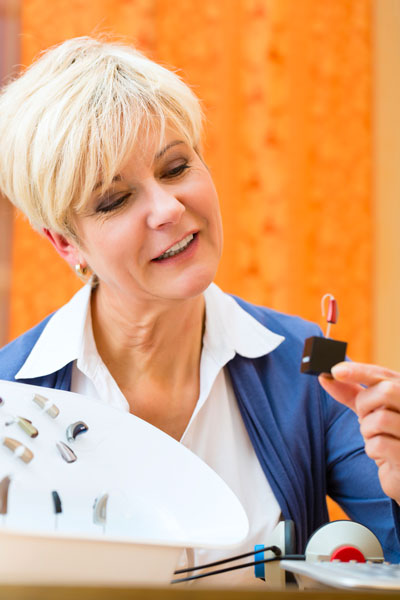
By introducing big box stores and online retailers to the hearing aid industry, the market has experienced exponential growth in the past few years. While these changes have made the process of purchasing hearing aid supplies more convenient, many are finding they are not getting the same quality of hearing devices. In order to make an informed choice on where to get your hearing devices, we’ve compiled a brief guide on some common hearing aid retailers.
Online Stores
Pros: When purchasing devices online, you benefit from a high level of convenience. Additionally, you can find refurbished or used hearing devices at a discounted price. Online retailers are typically more capable of maintaining a large inventory, so you may also have a greater variety to select from and have more options for customization.
Cons: In order to properly diagnose and treat your hearing loss, comprehensive in-person tests are required. When purchasing devices online, you are likely not required to submit hearing tests results. Consequently, devices may not be suited to treat your specific type of hearing loss. You may end up spending additional money getting the devices serviced by a hearing health professional.
Big Box Retailers
Pros: This option is typically more convenient than visiting a clinic, since it can be accomplished alongside your regular shopping. Large chains are also able to purchase mass amounts of inventory and sell devices at wholesale prices.
Cons: Though hearing tests are administered, these stores are generally staffed by hearing instrument specialists rather than audiologists. These dispensers are not familiar with the acoustic properties involved with programming a hearing aid. As a result, you may end up purchasing a device that is not equipped to meet your hearing needs.
Private Practices
Pros: By visiting a private audiology practice, you can be sure you are getting the greatest level of care. Unlike hearing aid dispensers, audiologists have studied hearing health at a master’s or doctorate level. They are also able to diagnose other conditions related to hearing and balance.
Cons: It can be an extra inconvenience to get yourself to an audiology practice. At face value, it may also seem more expensive to go to a private practice. However, many of these providers include the cost of additional follow-up appointments and maintenance in the price of the hearing aids.
So there you have it! When approaching this decision, you can focus on price, convenience, or style; however, the most important thing to consider is the safety of your investment. Take your time in researching dispensers and find a provider you trust. Doing so will ensure you get the most out of your hearing aids. To schedule a consultation with one of Houston’s best audiologists, call our team today at (281) 578-7500!